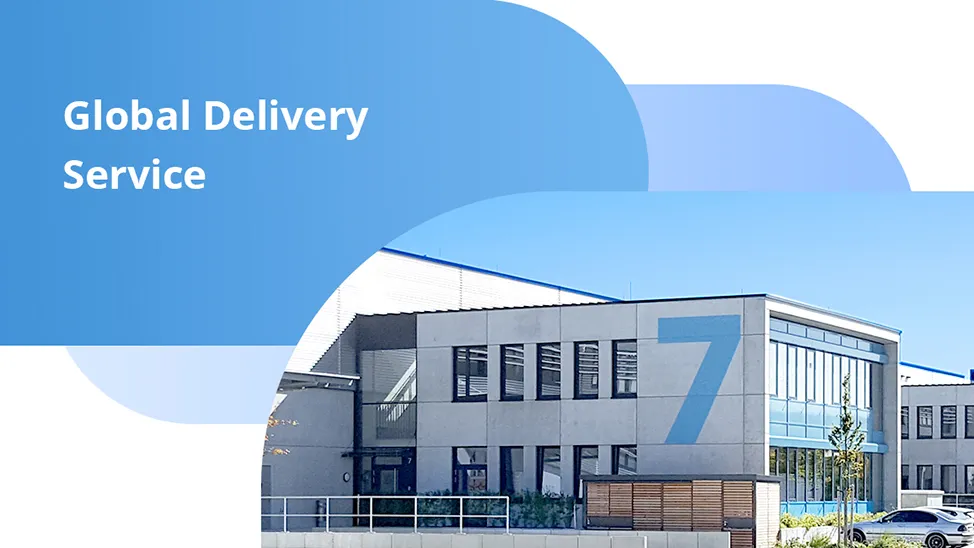Introduction to FS-provided Intel®/Intel Based Ethernet Adapters
NIC stands for Network Interface Card. Essentially, a NIC is a PCIe card that connects to a server or storage device, providing the necessary interface to access an Ethernet network. Intel®/Intel Based Ethernet Adapters provided by FS deliver speeds from 10 to 100GbE – with versatile capabilities to optimize workload performance.
While many are searching for information about Intel NICs, one key question often remains unanswered: What exactly are Intel NICs, and what differentiates them from each other?
FS-provided Intel®/Intel Based Ethernet Adapters are the ideal solution for high-performance virtualization, intelligent flow processing, secure data center connectivity, etc. Available in up to PCIe 4.0 form factors, support configurations ranging from 10G to 100G, and utilizing both optical and copper connectivity.
Based on Intel controller, we can divide Intel network adapters into several series including 800 series, 700 series, 500 series and Agilex 7 FPGA, with different port counts and form factors, delivers performance with efficient use of server processors. FS-provided Intel®/Intel Based Ethernet Adapters offer best-in-class compatibility, performance assurance. Key features and technologies deliver outstanding performance and support for data center workloads.

Intel Ethernet 800 series network adapters: Support speeds up to 100Gbps, Improve application efficiency and network performance with innovative and versatile capabilities that optimize high-performance server workloads such as NFV, storage, HPC, and hybrid cloud.
Intel Ethernet 700 series network adapters: Supports speeds up to 40GbE, broad interoperability, critical performance optimizations, and increased agility make 700 Series Network Adapters a good choice for communications, cloud, and data center applications.
Intel Ethernet 500 series network adapters: Supports speeds up to 10GbE, X550-AT2 with RJ45 interface simplifies migration, and backwards compatibility allows for a staged approach to higher-speed networks. With performance improvement, it is a solid and budget friendly financial decision.
Intel Agilex 7 FPGA: Providing ample bandwidth for line-speed communication on a single 100Gb port. Featuring flexible programming capabilities, high-performance RoCEv2 functionality, and line-rate throughput, widely applied in data centers, cloud computing, storage, hyper-convergence, and other fields.
FS-provided Intel®/Intel Based Ethernet Adapters Overview
FS-provided Intel®/Intel Based Ethernet Adapters offer best-in-class network performance, serving low-latency, high-throughput applications with one, two, or four ports at 10, 25, 40,100 gigabits per second (Gb/s) Ethernet speeds.
Here’s how to differentiate these Intel®/Intel Based Ethernet Adapters series by their specifications:
| Type | Product | Controller | Price | Speed | Port | Connection | Host Interface |
|---|---|---|---|---|---|---|---|
| 800 Series | |||||||
| E810CAM2-2CP | Intel E810-CAM2 | $659 | 100GbE | Dual | QSFP28, DAC and AOC | PCIe 4.0 x 16 | |
| E810XXVAM2-2BP | Intel E810-XXVAM2 | $239 | 25/10/1GbE | Dual | SFP28, DAC and AOC | PCIe 4.0 x 8 | |
| E810XXVDA4 | Intel® Ethernet Controller E810-CAM1 | $599 | 25/10GbE | Quad | SFP28, DAC and AOC | PCIe 4.0 x 16 | |
| 700 Series | |||||||
| XL710BM2-2QP | Intel XL710-BM2 | $399 | 40/10/1GbE | Dual | QSFP+, DAC and AOC | PCIe 3.0 x 8 | |
| XXV710AM2-2BP | Intel XXV710-AM2 | $299 | 25/10/1GbE | Dual | SFP28, DAC and AOC | PCIe 3.0 x 8 | |
| XXV710DA2 | Intel® Ethernet Controller XL-710BM2 | $299 | 25/10/1GbE | Dual | SFP28, DAC and AOC | PCIe 3.0 x 8 | |
| X710BM2-2SP | Intel X710-BM2 | $189 | 10/1GbE | Dual | SFP+, DAC and AOC | PCIe 3.0 x 8 | |
| XL710BM1-4SP | Intel XL710-BM1 | $339 | 10/1GbE | Quad | SFP+, DAC and AOC | PCIe 3.0 x 8 | |
| 500 Series | |||||||
| X550AT2-2TP | Intel X550-AT2 | $249 | 10GBase-T/5G/2.5G/1G | Dual | RJ-45 | PCIe 3.0 x 8 | |
| 82599ES-2SP | Intel 82599ES | $179 | 10/1GbE | Dual | SFP+, DAC and AOC | PCIe 2.0 x 8 | |
| FPGA | |||||||
| AG023R25A-1CP | Intel Agilex 7 FPGA | $1099 | 100GbE | Single | QSFP28 | PCIe 4.0 x 16 |
Powered by Intel controller, FS-provided Intel®/Intel Based Ethernet Adapters accelerate network performance while reducing the CPU overhead of Internet Protocol (IP) packet transport, freeing more processor cycles to run applications. With unmatched remote direct-memory access (RDMA) over Converged Ethernet (RoCE) performance, FS-provided Intel network adapters deliver efficient, high-performance RDMA services to bandwidth- and latency-sensitive applications. Providing offload and accelerating encryption/decryption at speeds up to 100Gb/s. With industry-leading Data Plane Development Kit (DPDK) performance, they deliver more throughput with fewer CPU cycles, designed to build highly-scalable, feature-rich networking solutions in servers for enterprise and cloud-scale networking and storage applications, including high-performance computing, telco, machine learning, storage disaggregation, and data analytics.
Conclusion
FS-provided Intel®/Intel Based Ethernet Adapters, available in multiple series, offer versatile capabilities to optimize workload performance and support data center applications with speeds ranging from 10GbE to 100GbE. The 800 series supports up to 100Gbps, ideal for high-performance workloads like NFV and HPC, while the 700 series provides up to 40GbE for cloud and communication applications. The 500 series offers a budget-friendly option at 10GbE with backward compatibility. Agilex 7 FPGA delivers flexible programming and high-performance line-speed communication. These adapters are designed to reduce CPU overhead and enhance network performance with advanced RDMA and DPDK support.
As the demand from data centers, enterprise networks, and telecommunications operators continues to grow, the market for network adapters willcontinue to expand. With ongoing technological advancements, their performance will improve as well. In the future, the application scope off network adapters will further expand, enables organizations to meet their current and future networking needs in both high-bandwidth and high-density environments.
You might be interested in
Email Address

-
PoE vs PoE+ vs PoE++ Switch: How to Choose?
May 30, 2024














